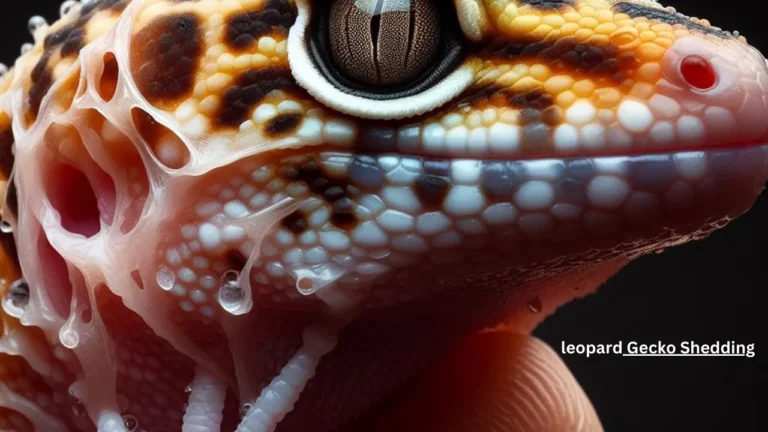Are Leopard Geckos Smart? (Sort Of, But Not Really)
Leopard Geckos are not intelligent, they are instinctive. Geckos, and reptiles in general, have relatively small brains and, in general, smaller brains equate to lower intelligence.
Add to that the fact that Leopard Geckos’ skulls are basically hollow – if you shine a flashlight through their ear canal you can see right through to the other side, and you probably wouldn’t expect much in the way or smarts from these cute little lizards.
What Is Intelligence Anyway?
Merriam-Webster defines intelligence as “the ability to learn or understand or to deal with new or trying situations” or “the ability to apply knowledge to manipulate one’s environment or to think abstractly as measured by objective criteria (such as tests)”.
So in some ways, you can say Leopard Geckos are ‘intelligent’ because they have the ability to understand that you are not a threat to them after a while and they can certainly use their environment to help them catch their food or camouflage themselves to hide from predators in the wild.
Some level of intelligence but less than human intelligence. Not getting very far here, are we?
And that’s kind of the point. Intelligence is a fluid concept and in general, animals are only as intelligent as they need to be to survive and procreate.
How Intelligent Are Leopard Geckos?
Of course, it’s not really fair to compare a Leopard Gecko’s intelligence to that of a human or judge them by our standards. Their brains are tiny by comparison and they have no real need for some of the more complex reasoning we are capable of – after all, why would a gecko need to remember someone’s name or dream up 35 rental life hacks for apartment living?!
We also need to consider the difference between wild geckos and those that have been bred in captivity.
Generations of captive breeding have led to the Leopard Gecko that we all know and love now – docile, friendly, and, some would say, less intelligent. Whether this type of breeding has led to actual changes in brain structure and a lower capacity for intelligence is debatable but there is no denying that captive geckos rely less on their natural instincts and this can certainly give the impression that they are ‘dumber’ than their wild cousins.
Let’s look at some ways that Leopard Geckos do show a level of intelligence:
Visual Skills
Leopard Geckos have extremely good low-light eyesight and are able to see color in the dark. They do have a fairly short focal length, however, so while they have impressive abilities to see things at night, they probably struggle to get a clear view of the world around them more than a few feet away.
Hearing
Leopard Geckos are very sensitive to sound and use this to their advantage in the wild to listen out for predators trying to sneak up on them. While this alone probably doesn’t rank very high on most people’s lists of ‘signs of intelligence’, you could argue that listening for, and then running away from, predators ties into the dictionary definition of intelligence in that they are using this knowledge to manipulate their environment (and get the heck out of it!)
Can they understand these sounds beyond using them as a generic warning about potential predators? It seems unlikely but some owners swear that, after many months of training, they have been able to get their gecko to learn their own name and respond to it. These reports are anecdotal at best though and could be down to any number of other factors just making it seem that way.
One thing to note for Leopard Gecko owners is that they don’t enjoy loud noises so having loud music or turning the TV up too high near them will result in a stressed-out gecko and nobody wants that.
Recognize Their Owners
A bit of a debatable one here. We tend to see things like recognizing their owner as a sign of intelligence in other animals such as dogs, but not everyone believes that Leopard Geckos actually do recognize their owners.
While it certainly seems to be the case that your Leo will develop a bond with you over time and may even enjoy a little petting, it’s not entirely clear if this is due to them getting to know, and maybe even like, you or if it’s just that they recognize your scent, remember that this situation is not dangerous and act accordingly.
To put it another way – does your gecko recognize you as their owner or do they just see you as a non-threatening object, kind of like a tree that sways in the wind over to their tank and drops a cricket in for them to eat?
Communication
Leopard Geckos are well known for the various noises they can make, and while we obviously have a limited understanding of what they all mean (unless someone’s invented a gecko translator that I’m not aware of?) the very fact that they are capable of making them and using them in different situations surely shows some degree of intelligence too?
It’s not uncommon for Leopard Geckos to use different sounds to communicate fear, anger, or even (potentially) contentment.
This vocal range shows off their awareness of different situations and the ability to react appropriately.
Conclusion
So, are leopard geckos smart? Yes and no.
They won’t be winning any science fairs but, as we’ve seen they are capable of learning and adapting which, in our opinion at least, shows some degree of intelligence.
They also one-up human brains in at least one way too – recent studies indicate that Leopard Geckos can regenerate brain cells which humans don’t, or are certainly not very good at, so there’s still hope for your lovable, simple-minded Leo – if they can regenerate enough brain cells maybe they can regenerate some extra intelligence at the same time.
It all comes down to perspective in the end. Smart compared to what, and how smart would you expect them to be? Sure there are ‘smarter’ animals out there but we think Leos strikes a perfect balance of being smart enough to be entertaining as pets but not so smart that they need constant attention and stimulation – something (very tired) parents of inquisitive young children will surely agree with!



